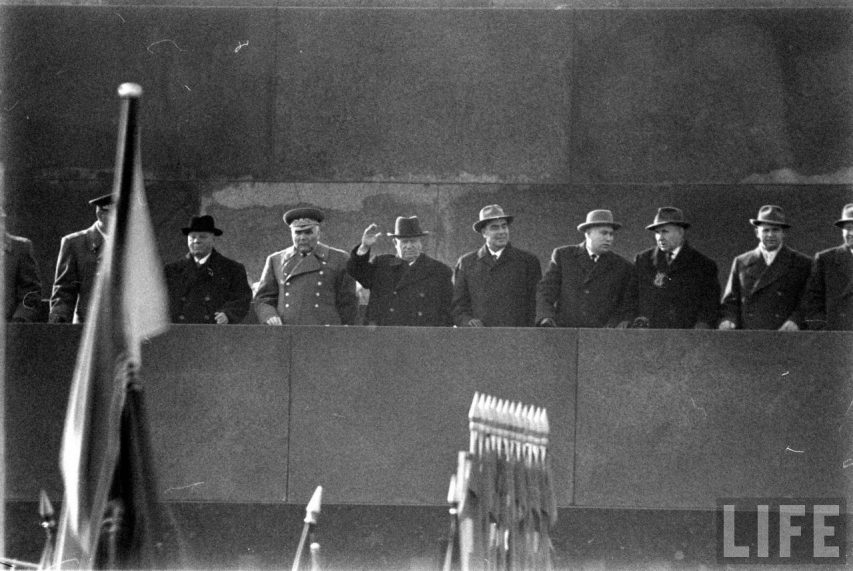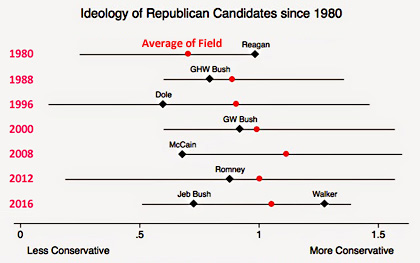In Quillette, Jason Garshfield outlines the “traditional” pattern of presidential elections and identifies the relatively few breaks in that pattern and how Donald Trump represents a major disruption compared to what outside observers might have expected to see:
… Yet the symbolic power of the presidency is paramount. We speak of the 1980s as the Reagan Era and the 1990s as the Clinton Era, not the “Tip O’Neill Era” or the “Newt Gingrich Era”. The presidency represents control over the federal government, and ultimately over the spirit and the direction of the nation. It is the highest political prize, and a party consistently denied the presidency will not remain a satisfied player in the system, even if they achieve political success on other meaningful fronts. This is dangerous in a nation where mutual assent is a prerequisite for the smooth functioning of a free and fair electoral system.
Trump’s 2024 victory does not feel as shocking as his 2016 victory did. After all, we’ve seen this show before. But 2024 is a more remarkable coup than 2016. Back then, Trump’s victory did not buck the prevailing trend. This time, he won against that trend and shattered the pattern.
Some have argued that Trump’s indomitable force of personality, demonstrated in the way in which he has refashioned American politics in his image over the past decade, vindicates the Great Man Theory of History. For instance, Yair Rosenberg, writing for The Atlantic in 2022, commented that Trump’s “personal idiosyncrasies — and, I would argue, malignancies — altered the course of American history in directions it otherwise would not have gone”. To Rosenberg, this represented a turn for the worse, but many of Trump’s supporters would say the same, while casting it in a more positive light. As with Napoleon Bonaparte, one cannot confidently state that if Trump had never been born, someone like him would have done what he did.
Elsewhere in this magazine, I compare Donald Trump to the Mule, a character in Isaac Asimov’s Foundation stories who, with his unique superpower of mind control, manages to undo the entire Seldon Plan which had been designed to direct the future of the galaxy. In Asimov’s fictional social science of psychohistory, humans are compared to molecules within a gas: the path of each individual molecule is unpredictable, but the movement of the gas as a whole can be predicted. But the psychohistorians assume that no one molecule can ever have a significant effect on the whole — and they are mistaken.
Trump is a particle that defies measurement. It is as though Heisenberg’s Uncertainty Principle applies to him: you can know where he is, or how fast he is going, but never both at the same time. Once you think you have him pinned down to a fixed point in the cosmos, he throws your calculations into chaos. This drives his opponents crazy and imbues his most fervent supporters with a near-messianic belief that he will triumph against any odds.
Social scientists tend to hate the Great Man Theory of History because it renders their work entirely meaningless. No matter how strong certain social forces may be, they can ultimately be dispensed with at any time by unpredictable mighty figures. As a result, the future is frighteningly unknowable. But both Great Man Theory and historical determinism have dire implications. Either individuals are irrelevant, or else we live in an unknowable and irrational universe, which unfolds according to no fixed laws. Neither theory allows rationalism and individualism to coexist.
The durability of the eight-year pattern in American politics seems to provide strong evidence against the Great Man Theory. Many of the leaders and almost-leaders of the United States since 1952 have been outsized personalities, yet the sociological paradigm suggests that their personal charisma had little impact on their success or failure. In this view, neither Barack Obama’s charm nor John McCain and Mitt Romney’s lack of charm radically influenced the outcomes of the 2008 and 2012 elections. It was simply time for a Democrat to win, and McCain and Romney might as well not have run. For that matter, both parties might as well have saved their energy and agreed to simply exchange places every eight years — that is, if we accept historical determinism as the driving factor.
Before Trump, only two other figures in postwar America came close to being Great Men. They were the finalists of the 1980 election: Ronald Reagan, who managed to win against the pattern and usher in twelve straight years of Republican control, and Jimmy Carter, who lost the election he should have won. It is debatable as to whether the 1980 election was more a story of Carter’s weakness or Reagan’s strength, but both undoubtedly played a role. Now Trump has become both Carter and Reagan, the unexpected loser of one election and the unexpected winner of another.






 For those of us who are sort of fascinated by the rise of Scott Walker as a Republican presidential contender, here’s an interesting chart from Jason McDaniel, a political science professor at San Francisco State University. It shows the relative conservative-ness of GOP presidential nominees in the past six contested elections, and it demonstrates what an outlier Walker would be if he won next year’s primary: He’d be the first candidate since Ronald Reagan who’s more conservative than the average of the Republican field. And by McDaniel’s measure, he’d actually be the most conservative recent nominee, period —
For those of us who are sort of fascinated by the rise of Scott Walker as a Republican presidential contender, here’s an interesting chart from Jason McDaniel, a political science professor at San Francisco State University. It shows the relative conservative-ness of GOP presidential nominees in the past six contested elections, and it demonstrates what an outlier Walker would be if he won next year’s primary: He’d be the first candidate since Ronald Reagan who’s more conservative than the average of the Republican field. And by McDaniel’s measure, he’d actually be the most conservative recent nominee, period — 

